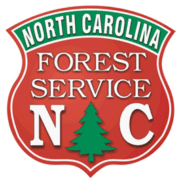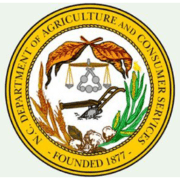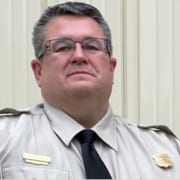N.C. Forest Service: Safety First To Prevent Wildfires
The N.C. Forest Service reminds everyone to use extreme caution with all outdoor fires, especially yard debris burns, as thoughts turn to spring and tidying up landscapes. And don’t forget: You need a valid burn permit before you start a fire.
In 2023, the Forest Service responded to more than 5,300 wildfires across the state. The main culprit: Escaped burn debris, according to information from fire service officials.
“Last year, 99 percent of wildfires in our state were directly related to human activity,” said Agriculture Commissioner Steve Troxler. “This means that most of our wildfires could have been prevented. Before choosing to burn yard debris, make sure you have a valid burn permit, check the weather and avoid burning on dry, windy days. You are the first line of defense when it comes to preventing wildfires.”
Spring weather tends to draw people outdoors to work in their yards and many choose burning as a method to dispose of leaves, limbs and other yard debris.
“During the spring season, fires can spread quickly,” said State Forester David Lane. “Your N.C. Forest Service county ranger is a resource and can provide guidance about when, where and how to burn safely outdoors. Contact your local NCFS county ranger’s office before starting an outdoor fire.”
Rob Montague is the ranger for Vance and Granville counties. His email is Vance.ncfs@ncagr.gov and his phone is 919.693.3154.
Brian Champion is the ranger for Franklin County. His email is Franklin.ncfs@ncagr.gov and his phone is 919.496.3665.
Jim Short serves Warren County; reach him via Franklin.ncfs@ncar.gov or 252.257.5960.
The N.C. Forest Service also offers the following tips:
- Check local burning laws. Some communities allow burning only during specified hours. Others forbid it entirely.
- Make sure you have a valid permit. You can obtain a burn permit at any Forest Service office or authorized permitting agent, or online at www.ncforestservice.gov/burnpermit.
- Keep an eye on the weather. Don’t burn on dry, windy days.
- Local fire officials can recommend a safe way to burn debris. Don’t pile vegetation on the ground. Instead, place it in a cleared area and contain it in a screened receptacle away from overhead branches and wires.
- Be sure you are fully prepared before burning. To control the fire, you will need a hose, bucket, steel rake and a shovel for tossing dirt on the fire. Keep a phone nearby, too.
- Never use kerosene, gasoline, diesel fuel or other flammable liquids to speed up debris burning.
- Stay with your fire until it is completely out.
To learn more about fire safety and preventing wildfires and loss of property, refer to Fire Safety Outdoors. For information about creating defensible space and a fire-resistant landscape around your home and property, visit www.resistwildfirenc.org.



